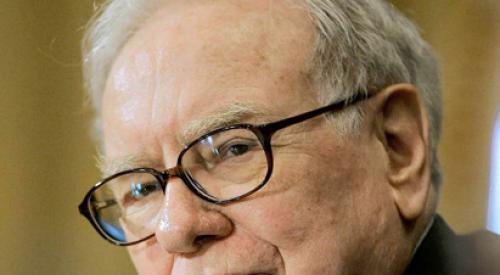Despite his initial predictions for a housing recovery not panning out, Warren Buffett still believes the market will get back on track soon, according to Business Insider. The billionaire investor tells Berkshire Hathaway shareholders in the annual letter that “hormones” will help even out supply and demand for housing units.
According to Buffet, an excess supply of housing units is largely why the market has failed to recover as yet. He foresees, however, that as the recession continues, more people — particularly young couples — will form new households, rising to meet the excess supply of housing units.
Below are the housing-related excerpts from Buffett’s letter:
“Housing will come back – you can be sure of that. Over time, the number of housing units necessarily matches the number of households (after allowing for a normal level of vacancies). For a period of years prior to 2008, however, America added more housing units than households. Inevitably, we ended up with far too many units and the bubble popped with a violence that shook the entire economy.
That created still another problem for housing: Early in a recession, household formations slow, and in 2009 the decrease was dramatic. That devastating supply/demand equation is now reversed: Every day we are creating more households than housing units. People may postpone hitching up during uncertain times, but eventually hormones take over. And while “doubling-up” may be the initial reaction of some during a recession, living with in-laws can quickly lose its allure.
At our current annual pace of 600,000 housing starts – considerably less than the number of new households being formed – buyers and renters are sopping up what’s left of the old oversupply. (This process will run its course at different rates around the country; the supply-demand situation varies widely by locale.) While this healing takes place, however, our housing-related companies sputter, employing only 43,315 people compared to 58,769 in 2006. This hugely important sector of the economy, which includes not only construction but everything that feeds off of it, remains in a depression of its own. I believe this is the major reason a recovery in employment has so severely lagged the steady and substantial comeback we have seen in almost all other sectors of our economy.
Wise monetary and fiscal policies play an important role in tempering recessions, but these tools don’t create households nor eliminate excess housing units. Fortunately, demographics and our market system will restore the needed balance – probably before long. When that day comes, we will again build one million or more residential units annually.”













